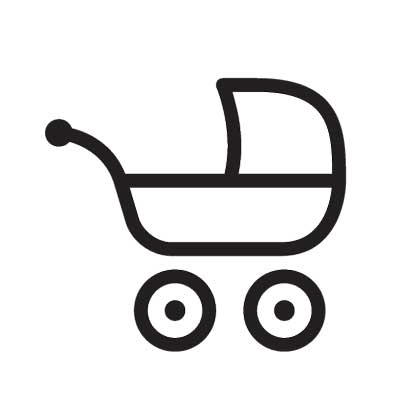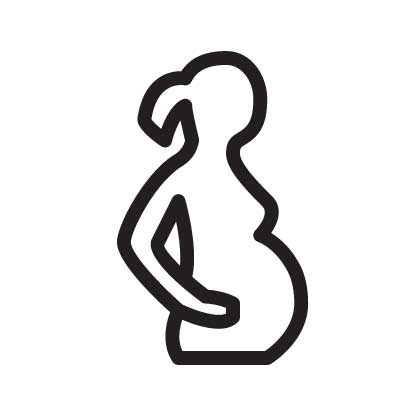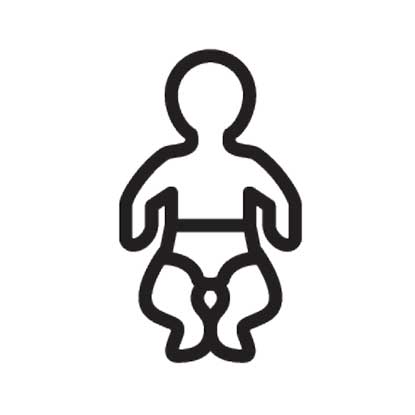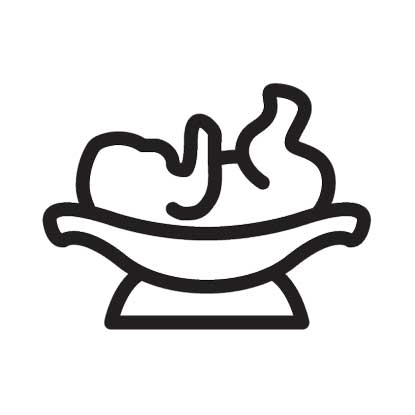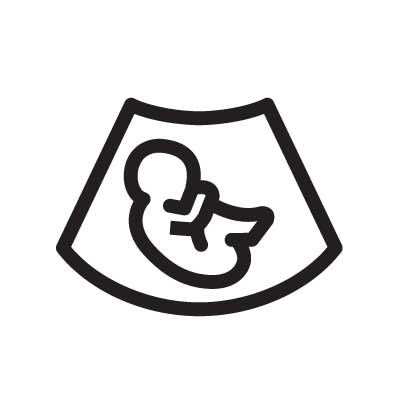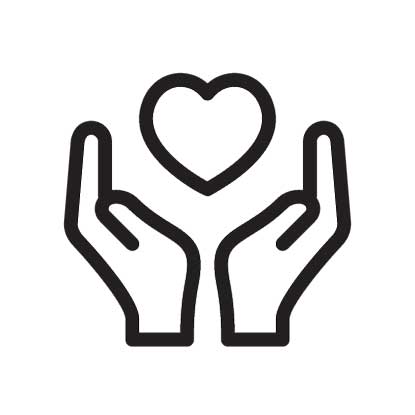Pregnancy complaints
Pregnancy complaints (A to Z)
Important to know
Hemorrhoids/varicose veins
Due to the pregnancyhormone progesterone the walls of the veins weaken. Also, at the end of the pregnancy the heavy uterus presses on the blood veins that run through the groins. As a result, it becomes harder for the blood in the lower part of the body to go back up. This can cause varicose veins in the legs, but also in, for example, the labia. If this is bothering you, it is important not to stand up too long or sit with your legs crossed. Sometimes it is necessary to have support-stockings made. Hemorrhoids are also a form of varicose veins but around the anus. Several different creams are in existence to counteract this. You can ask us for advice. It is important when you have hemorrhoids to make sure you don’t develop constipation complaints. Pushing makes hemorrhoids worse (see ‘constipation’).
Vaginal discharge
Ligament pain
Pelvis- and back-pain
Urinary tract infection (UTI)
Dizziness
Especially during the beginning of their pregnancy a lot of pregnant women experience dizziness and can sometimes even faint. This is the result of falling blood-pressure during pregnancy. This occurs to make sure that the uterus receives enough blood. Also, your sugar levels will drop more rapidly after you’ve had a meal. The dizziness cannot hurt you or your baby.
Advice when you experience dizziness:
- Drink plenty of fluids
- Eat small amounts during the day to keep you sugar-level up
- Take it slow
Braxton Hicks contractions
Palpitations
Headache
During pregnancy you can suffer from headaches. These can come into existence as a result of changing hormone levels in the body. The body also requires more fluid during pregnant and a headache can point to a shortage of fluid. Therefore, it is important to drink plenty.
If you suddenly get a headache during the second part of your pregnancy it is important to always contact us.
It is possible for there to be other causes of the headache, such as stress or the flu. A regular paracetamol can be taken without problems. If the headache persists, please contact us.
Incontinence
If you suffer from fluid loss, convince yourself that it’s urine and not amniotic fluid. In case of doubt, always contact us.
Itch
Sometimes itch can be a sign that the pregnancy hormones are causing congestion of the liver. The itch will than spread across the entire body, especially on the inside of the hands and soles of the feet. If this happens, it can be necessary to do further examinations.
Let us know if you have itch symptoms.
Shortness of breath
Shortness of breath and loss of breath, even after minimal exertion, is something that can occur during pregnancy. It is caused by pressure from the uterus again the lungs. In addition, your body gives you the idea that you require more oxygen (while this is actually not true). As a result you will inhale deeper, the child will receive more oxygen and it loves that.
Shortness of breath can’t hurt. Relax yourself and the symptoms will generally subside.
Cramps
Reflux
Acid-reflux is a burning feeling behind the sternum and sometimes in the throat as a result of an acidic stomach contents that comes up through the esophagus. This can be extra common during pregnancy. This is due to the fact that the muscle that closes-off the stomach works less well because of the pregnancy hormones. Additionally, at the end of the pregnancy the uterus presses on the stomach.
Advice that can help when you suffer from acid-reflux:
• Eat small amounts during the day instead of 3 big meals
• Don’t eat food that is too spicy or greasy and stay away from carbonated drinks
• Elevate yourself while laying in bed
• Milk, vanilla-pudding, dry oatmeal or a peppermint
In case you are still bothered by acid-reflux after applying this advice, you can get some medicine at the pharmacy.
Nausea
Nausea is the most common symptom at the start of the pregnancy. The cause of this is still not totally clear, but hormones are likely to play a large part. Vomiting, especially in the morning, is something a lot of pregnant women are bothered by.
Tips against nausea:
• Eat something before you get up, for example a biscuit
• Eat small amounts during the day
• Don’t eat food that is too spicy or greasy
• Ginger, for example draw tea from fresh gingerroot, or gingercookie
If you suffer from extreme nausea or you can’t keep anything inside, please contact us. If you become nauseated again during the second half of your pregnancy, always contact us.
Constipation
Because of hormones during pregnancy your intestines can start working slower. This can cause symptoms of constipation. When you suffer from constipation it is wise to drink a lot, a minimum of 2 liters a day. Additionally, you have to watch what you eat. It’s important to eat fiber rich food like brown bread en plenty of fruit. Doing exercise is also important: get coffee for your colleagues or go for a half hour walk every evening.
Other things that can help are flax seed (available at homeopathic stores, but also in the form of bread) and Roosvicee laxo. If symptoms of constipation persist, medication can be prescribed.
Insomnia
Remember that this is a symptom a lot of pregnant women have and try to catch up on the sleep you missed at night during the day.
Striae
Abdominal striae or stripes are caused by the stretching of the skin. At the spots where the skin stretches a little too far small scars occur: the striae. They’re generally located on the belly, but can also occur on the breasts. In the beginning they are red-blue in color, but after the pregnancy they will become less apparent. They will never disappear completely.
Unfortunately, it is impossible to avoid striae. Sometimes it’s nice to rub the skin with lotion and keep it smooth this way.
Tiredness
Forgetfulness
Retaining fluid
A lot of pregnant women retain fluid, especially during the final period of the pregnancy. This causes swollen feet, ankles, and hands. Sometimes the fingers can have a tingling sensation. Sit with your legs up during the evening to keep the fluid streaming upwards. You can also sleep with the lower side of your mattress somewhat higher. Try not to stand up too long during the day. To avoid tingling hands, it helps to splint your wrists, for example with the use of wristguards used in roller-skating. Drinking a lot is also important to flush the body.
As long as there are no other symptoms, retaining fluid is not a bad thing. If you are known to have high blood pressure, if the fluid retention occurs suddenly, or you have additional symptoms, always contact us.
Pre-labor contractions
At the end of the pregnancy the uterus starts to prepare itself for the delivery. This can occurs weeks prior to the delivery and may cause pre-labor contractions. You can also be bothered by descending-contractions. This usually occurs at night.
Characteristics of pre-labor contractions are that they are irregular and go away after a while. If you’re not sure whether or not you’re dealing with pre-labor contractions, or you believe you may have gone into labor, it helps to get into a warm bath or taking a hot shower. Pre-labor contractions go away as a result of relaxation, while real contractions increase.
